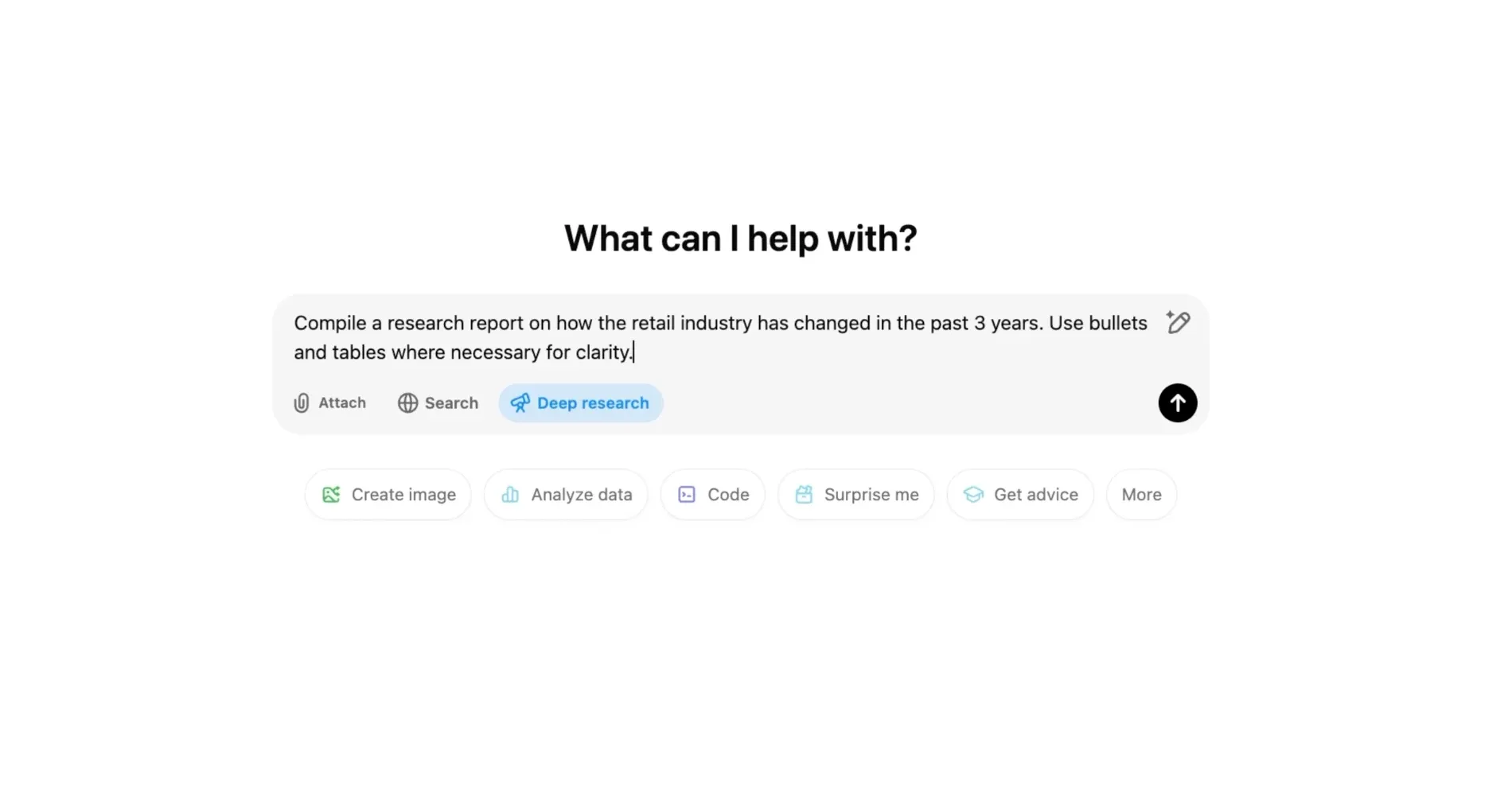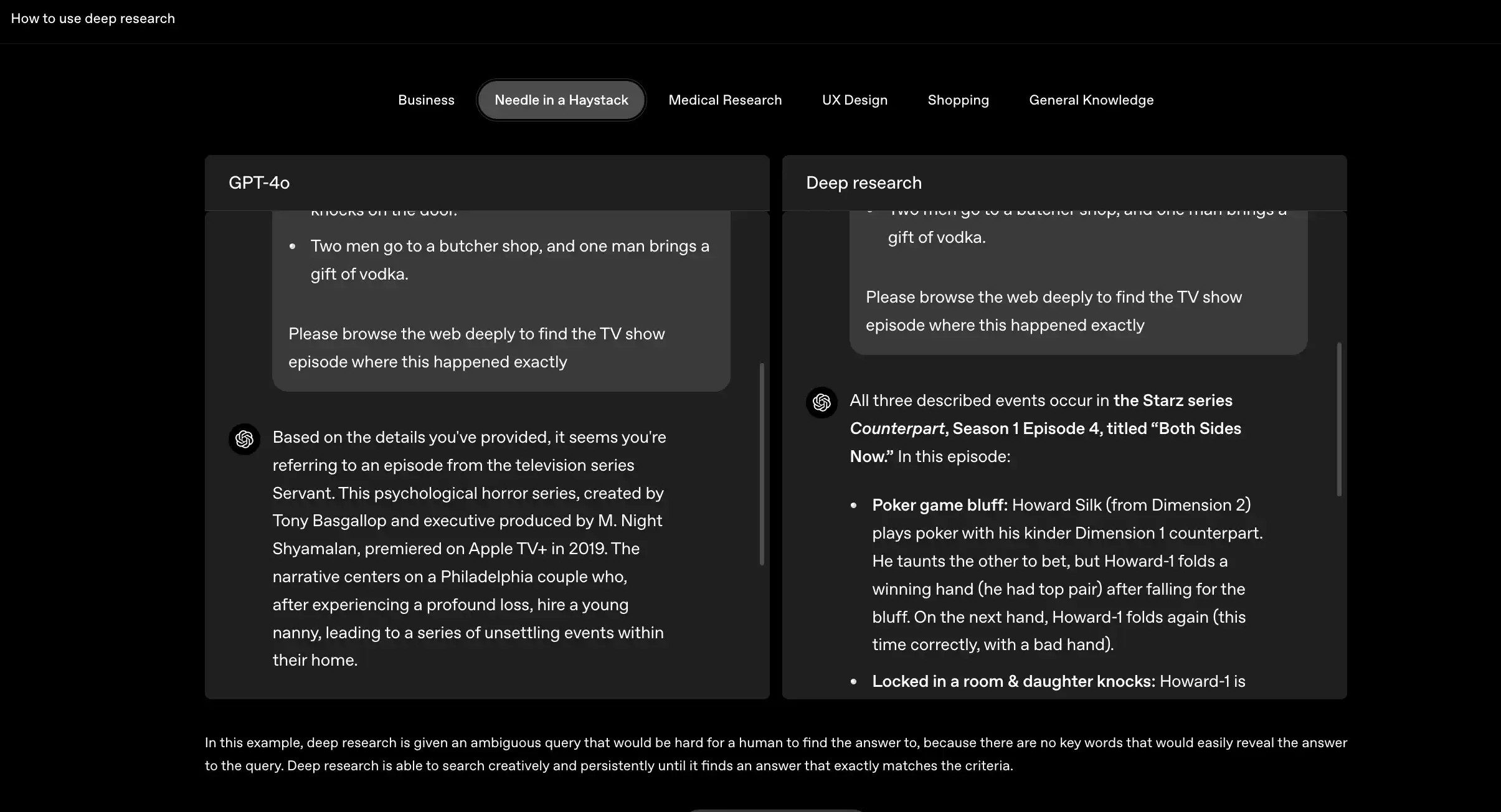OpenAI’s ‘Deep Research’ targets AI’s biggest problems—what it means for marketers and content creators
Deep Research automates data gathering. Learn how it can improve content strategy and trend analysis.

OpenAI has launched Deep Research, a new tool designed to handle complex, multi-step research tasks. Unlike OpenAI’s product teams working on ChatGPT and DALL·E, this initiative focuses on long-term AI challenges like transparency, safety, and alignment with human values.
The tool rolled out on February 2 and is currently available only to ChatGPT Pro users in the U.S. OpenAI plans to expand access to more regions and users over time.
For digital marketers and content creators, the implications go beyond AI safety and interpretability. Deep Research could shape how AI ranks content, generates insights, and streamlines research-heavy tasks.
While it is not explicitly built for marketing, the ability to process vast amounts of information quickly could offer new ways for marketers to track trends, optimize SEO strategies, and enhance content performance.
💡 Pressed for time? Here’s what matters:
- OpenAI launched Deep Research on February 2, 2025, available only to ChatGPT Pro users in the U.S. for now.
- It automates multi-step research tasks, analyzing text, images, and PDFs to generate structured reports.
- Designed for finance, science, and engineering professionals, but marketers and content creators can leverage it for SEO, content strategy, trend analysis, and audience insights.
- No timeline for global rollout, but OpenAI plans to expand access.
- Marketers can use Deep Research to speed up content research, social listening, competitive analysis, and ad personalization.
Who can use it?

Deep Research is designed for professionals who need to process large amounts of information quickly. Key industries that can benefit include:
- Finance – Investment research, market analysis
- Science – Reviewing academic papers, summarizing studies
- Engineering – Technical documentation, patent searches
For marketers, the tool could eventually provide deeper insights into content trends, audience behavior, and search engine ranking patterns. AI-generated research could also assist with competitive analysis, campaign optimization, and editorial strategy.
What can it do?
Deep Research automates search, data gathering, and summarization by analyzing text, images, and PDFs. Instead of spending hours compiling information from multiple sources, users can get structured reports within minutes.
For example, a financial analyst tracking emerging market trends can ask Deep Research to pull insights from multiple sources and deliver a summary—helping them make faster, data-driven decisions.
For digital marketers, this could mean a faster way to track industry trends, competitor activities, and audience sentiment across multiple sources. For example, a content team looking at SEO trends could use Deep Research to analyze algorithm updates, industry best practices, and ranking factors without manually scouring dozens of articles.
A long-term play with no quick wins
Unlike OpenAI’s previous product launches, Deep Research is part of a larger effort to make AI more interpretable—a challenge that may take years to solve. OpenAI wants to move beyond AI models that act as “black boxes” and instead build systems that explain their reasoning.
For marketers, this could mean:
- Better AI-driven content – Understanding why AI ranks certain content higher, helping with SEO and ad optimization.
- More reliable AI-generated content – Reducing bias and misinformation risks, keeping brand messaging safer.
- More predictable AI tools – Increasing trust in AI-based automation for audience insights and personalization.
But these benefits won’t come immediately. OpenAI has not provided a timeline for when or how Deep Research will influence marketing tools.
How marketers can utilize deep research
While Deep Research is not a direct marketing tool, its ability to gather and process vast amounts of data makes it valuable for marketers looking to improve content research, trend forecasting, and competitive analysis. Here’s how marketing and content teams can take advantage of the tool as it evolves:
Content strategy and ideation
Marketers and content creators spend significant time researching industry trends, customer pain points, and competitive insights. Deep Research can automate this process, summarizing multiple sources into actionable insights. For example, rather than scanning multiple whitepapers and reports, marketers can ask Deep Research to identify key themes in consumer behavior or summarize industry shifts.
SEO and ranking optimization
AI-driven content strategies rely on understanding search engine algorithms. Deep Research could help by analyzing recent Google algorithm changes, case studies on high-ranking content, and keyword trends, allowing SEO teams to make informed adjustments more efficiently.
Audience sentiment and social listening
Brands already use AI tools for social listening, but Deep Research could take it further by analyzing long-form content, research reports, and expert opinions. For instance, if a company wants to track how sustainability topics are evolving in digital conversations, Deep Research could analyze thought leadership articles, scientific research, and media narratives at scale.
Ad targeting and personalization
If AI models become more interpretable, ad platforms powered by AI could offer clearer insights into why certain audiences engage with specific types of content. This could refine ad targeting and creative messaging, reducing budget waste and improving engagement.
Since its launch on February 2, OpenAI has hinted at expanding Deep Research to more users, but no exact timeline has been shared.
While it won’t change marketing strategies overnight, it could shape the next wave of AI-powered tools—making AI research, automation, and content creation more transparent and effective.
For now, marketers should focus on AI tools available today but stay alert for how Deep Research could reshape how AI understands and ranks information in the future.


